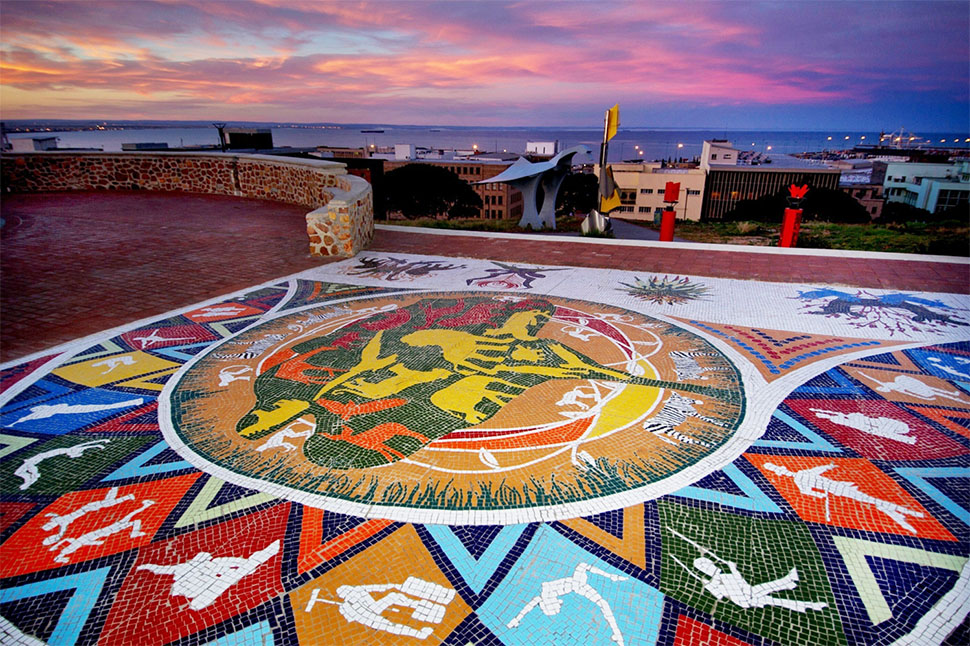
Urban Research: Accessible cities
How do we decrease the numbers of citizens that do not have full access to the cities - in all dimensions of accessibility? How do we make our cities more just and sustainable?
The long-lasting partnership between the City of Gothenburg and Nelson Mandela Bay Municipality Partnership work together in the project Accessible cities 2017-2020. The municipal partnership together with Mistra Urban Future and the local city district Östra Göteborg invites to a seminar called Urban Research in Bergsjön to discuss and learn together how to create more accessible cities.
Access in this project is not limited to the traditional concepts of access relating to mobility or proximity. In the project and in this seminar, ”access” is considered broad, grouped in four ways of interpretation of the word; politically/democratically/socially, economically, spatially/physically and notionally. By taking this as a starting point in the search for recommendations for more accessible cities, we assume that we can strengthen the cities as systems for justice as well as strengthen local communities.
Some of the questions that have been raised are: How to develop perspectives on the city as a system for justice? How to find ways to strengthen the local communities? How to improve the relationship to the rest of the city for every citizen?
As this seminar takes place in Bergsjön further questions from the local context will be added to the groups and to the joint conversation.
This seminar is part of helping the project to develop practical recommendations for implementation in the cities. The seminar also aims to create an initial forum between researchers and professionals from different sectors/disciplines in the municipalities and academy. Together we will reflect and explore the possibilities for further co-creation that help answering the questions in the project.
When: 6th March 2018, 13:15 - 16:30
Where: Bergsjöns kyrka, Rymdtorget 5, Göteborg
Who: Public officials, politicians, civil society and researchers in the field of interest for questions raised above. Project members and partners, have priority.
The seminar is held in English
Registration is binding: Please register at the latest 1st March.
Speakers
Ann Legeby – KTH Royal Institute of Technology – School of Architecture
Lessons from the research project Dela[d] Stad within Mistra Urban Futures about accessibility, equal living conditions, segregation in relation to city development processes. Examples from Gothenburg (Bergsjön and more) and project from other cities in Sweden.
Katrin Lättman – Karlstad University
Research on perceived accessibility of public transport, and capturing the traveler perspective, as a potential indicator of social inclusion. Has developed a psychometric tool for measuring perceived accessibility within public transport.
Anders Larsson – University of Gothenburg
Proximity changes to what and for whom? Investigating sustainable accessibility change in the Gothenburg city region 1990–2014.
Stina Hansson – University of Gothenburg
To create trust and collective action in order to work for local interests and decrease inequalities in health in the local city district of Angered. The project is focusing on obstacles and possibilities to improve and affect the local city district in relation to the municipality.
Preliminary programme
Moderator: Deon Pretorius and Åsa Lorentzi research coordinators in the GBG-NMBM project for accessible cities.
13:15 Introduction by Gitte Caous, the City District Manager of Östra Göteborg, Margareta Forsberg Director Mistra Urban Futures Gothenburg Platform, representatives from the City of Gothenburg and Nelson Mandela Bay Municipality partnership, and check in “who are the participants in the room and why are each and everyone here?”
13:40–14:30 Research perspectives Aspects of accessibility Part I, including discussions and reflections in small groups.
14:30 Coffee break
15:00–15:50 Research perspectives Aspects of accessibility Part II, including discussions and reflections in small groups.
15:50–16:30 Joint conversations, conclusions and way forward.
Contacts
If you have any questions about the program, please contact:
asa.lorentzi@norrahisingen.goteborg.se or staffan.claesson@framtiden.se
For other questions, please contact:
Johan Berlin johan.berlin@chalmers.se, 073-3056902 or
Ulrica Gustafsson, ulrica.gustafsson@chalmers.se, 0721-88 55 88